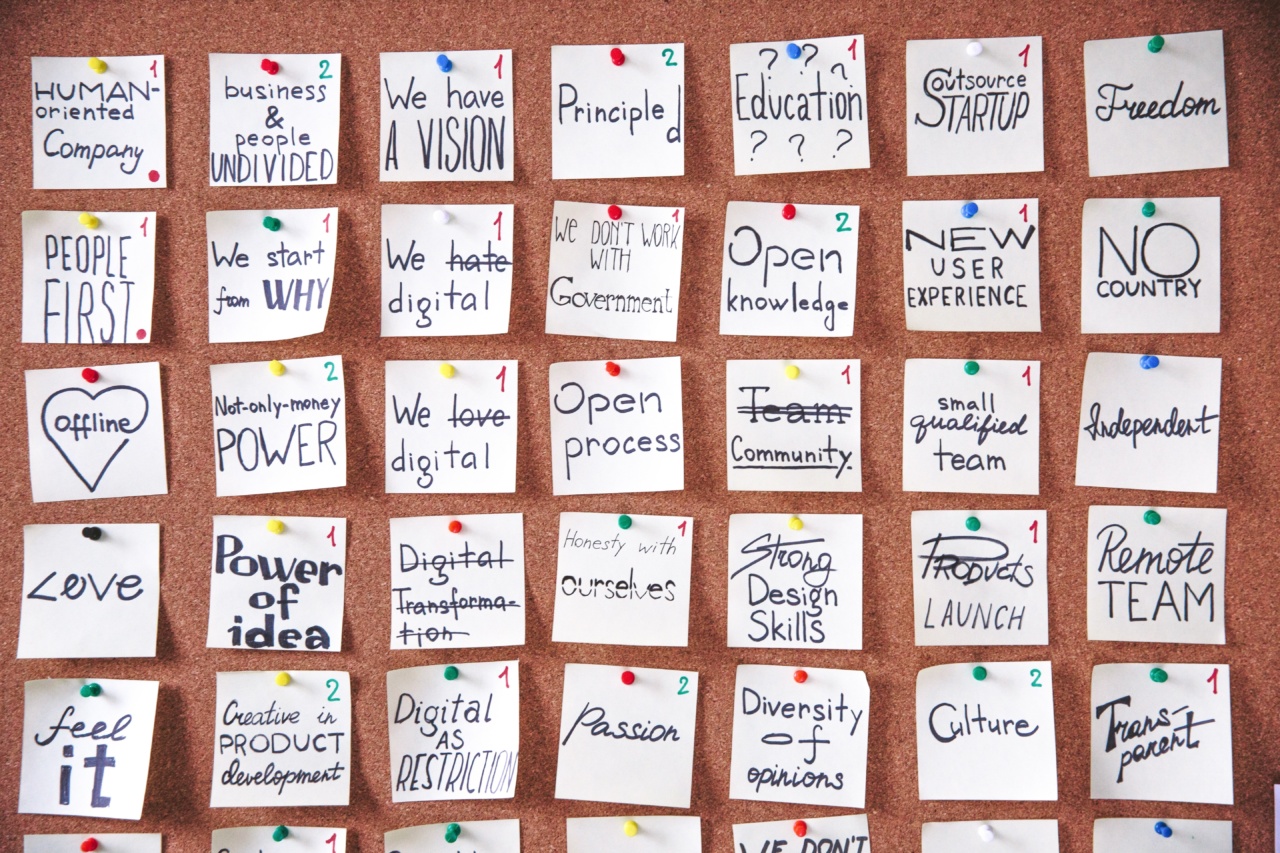Self-discipline is the ability to control one’s desires, actions, and emotions in order to achieve long-term goals. It is an essential characteristic that helps individuals lead a productive and successful life.
However, there are instances when people experience a loss of self-discipline, which can have a profound impact on their priorities and overall well-being. In this article, we will explore how the loss of self-discipline can transform an individual’s priorities.
Understanding Self-Discipline
Self-discipline is often considered the key to achieving personal and professional growth. It involves making conscious choices and taking actions that align with our long-term goals, even when faced with distractions, temptations, or setbacks.
Self-discipline requires willpower and mental strength to resist instant gratification and focus on what truly matters in the long run.
However, self-discipline is not something that remains constant throughout one’s life. It can be eroded by various external and internal factors, which can impact an individual’s ability to stay committed to their goals and principles.
The Loss of Self-Discipline
There are several factors that can contribute to the loss of self-discipline. Stress, lack of motivation, lack of accountability, and poor habits are some common reasons that can weaken self-discipline over time.
When self-discipline is lost, individuals often find themselves succumbing to instant gratification, giving in to short-term pleasures rather than prioritizing their long-term goals.
This loss of self-discipline can have a profound impact on an individual’s priorities. What was once important to them may take a backseat as they prioritize immediate rewards and indulgences.
For example, someone who previously focused on maintaining a healthy lifestyle may start neglecting their diet and exercise routine, opting for unhealthy food choices and sedentary behavior.
Transformation of Priorities
When self-discipline is lost, priorities tend to shift towards more immediate and short-term desires. Responsibilities, commitments, and long-term goals can easily be overshadowed by the allure of instant gratification.
This transformation of priorities can have negative consequences on various aspects of an individual’s life.
Impact on Health and Well-being
One of the areas most affected by the loss of self-discipline is an individual’s health and well-being.
Neglecting healthy habits such as proper nutrition, regular exercise, and sufficient sleep can lead to weight gain, decreased energy levels, and an increased risk of developing chronic diseases. The loss of self-discipline can also lead to the neglect of mental health, as individuals may avoid seeking help or engaging in self-care activities.
Effects on Relationships
Loss of self-discipline can also strain relationships. When individuals prioritize instant gratification over long-term commitments, they may neglect their loved ones’ emotional needs and fail to fulfill their responsibilities.
This can lead to conflicts, resentment, and a breakdown in trust within relationships.
Career Consequences
Self-discipline is crucial for professional success. However, when individuals lose self-discipline, their work ethic and productivity often suffer.
Deadlines may be missed, quality of work may decline, and opportunities for growth and advancement may be missed. This can have long-term consequences on an individual’s career trajectory and financial stability.
Finding the Path to Recovery
Recovering self-discipline after experiencing a loss can be challenging, but it is not impossible. Here are a few strategies that can help individuals regain their self-discipline and realign their priorities:.
1. Set Clear Goals
Setting clear, measurable goals is essential for regaining self-discipline. Clearly define what you want to achieve and establish a timeline for accomplishing your goals. This will give you a sense of purpose and direction.
2. Create a Routine
Implementing a daily routine can help in rebuilding self-discipline. Set specific times for tasks, such as waking up, working, exercising, and relaxing. Following a routine reduces reliance on willpower and makes it easier to stick to good habits.
3. Practice Mindfulness
Mindfulness helps in developing self-awareness and self-control. By being present in the moment, individuals can better recognize their impulses and consciously choose actions that align with their long-term goals.
4. Seek Accountability
Find an accountability partner or join a supportive community that shares similar goals. Being accountable to others can provide motivation, encouragement, and a sense of responsibility to stay disciplined.
5. Break Tasks into Manageable Steps
Large tasks can be overwhelming and discourage self-discipline. Break them down into smaller, manageable steps. Celebrating the completion of each step can provide a sense of accomplishment and motivate further progress.
6. Reward Yourself
Recognize and reward yourself for staying disciplined and achieving your goals. These rewards can be small treats or moments of leisure that provide motivation and reinforce the importance of self-discipline.
7. Practice Self-Compassion
It is essential to be kind and forgiving to oneself during the journey of rebuilding self-discipline. Acknowledge that setbacks are a part of the process and that one should learn from them rather than let them discourage future progress.
Rebuilding Priorities
As individuals regain self-discipline, their priorities will naturally start to shift back towards their long-term goals and commitments. It is important to be patient and persistent in the journey of realigning priorities.
By consciously choosing actions that reflect their values and long-term aspirations, individuals can transform their priorities and reclaim control of their lives.
Gradually, they will find themselves prioritizing what truly matters and living a more fulfilling and purpose-driven life.































